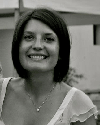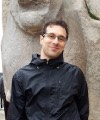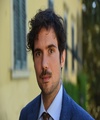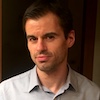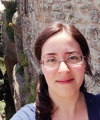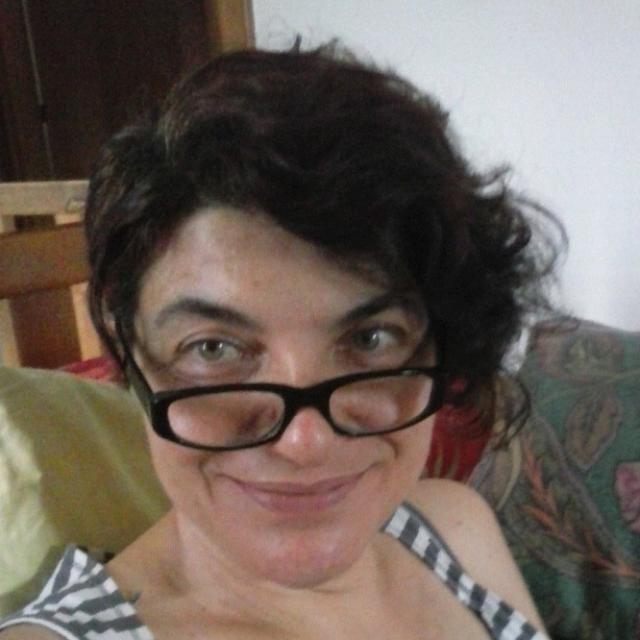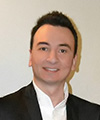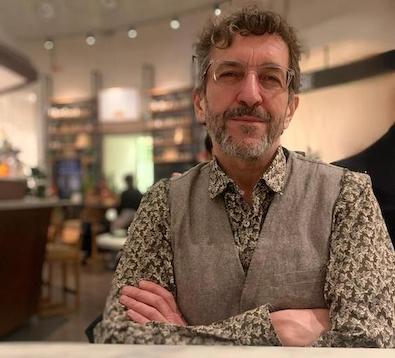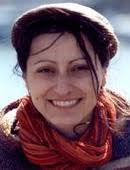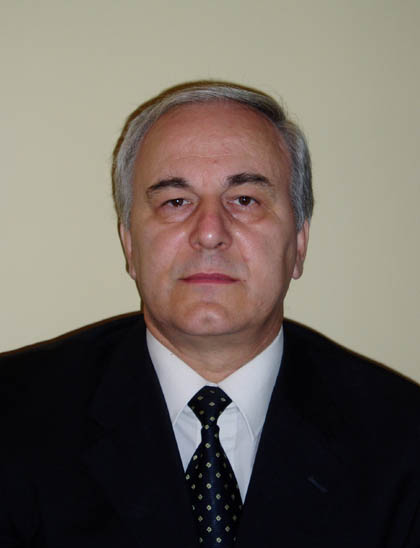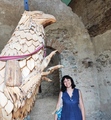Studying at the University of Verona
Here you can find information on the organisational aspects of the Programme, lecture timetables, learning activities and useful contact details for your time at the University, from enrolment to graduation.
Academic calendar
The academic calendar shows the deadlines and scheduled events that are relevant to students, teaching and technical-administrative staff of the University. Public holidays and University closures are also indicated. The academic year normally begins on 1 October each year and ends on 30 September of the following year.
Course calendar
The Academic Calendar sets out the degree programme lecture and exam timetables, as well as the relevant university closure dates..
| Period | From | To |
|---|---|---|
| First half of Semester 1 | Sep 25, 2017 | Nov 11, 2017 |
| Second half of Semester 1 | Nov 13, 2017 | Jan 20, 2018 |
| First half of Semester 2 | Feb 26, 2018 | Apr 21, 2018 |
| Second half of Semester 2 | Apr 23, 2018 | Jun 9, 2018 |
| Session | From | To |
|---|---|---|
| Sessione d'esame invernale | Jan 22, 2018 | Feb 24, 2018 |
| Sessione d'esame estiva | Jun 11, 2018 | Jul 28, 2018 |
| Sessione d'esame autunnale | Aug 27, 2018 | Sep 22, 2018 |
| Session | From | To |
|---|---|---|
| Sessione estiva | Jul 16, 2018 | Jul 21, 2018 |
| Sessione autunnale | Nov 12, 2018 | Nov 17, 2018 |
| Sessione invernale | Apr 1, 2019 | Apr 6, 2019 |
| Period | From | To |
|---|---|---|
| All Saints Day | Nov 1, 2017 | Nov 1, 2017 |
| Immaculate Conception | Dec 8, 2017 | Dec 8, 2017 |
| Christmas break | Dec 22, 2017 | Jan 7, 2018 |
| Easter break | Mar 30, 2018 | Apr 3, 2018 |
| Liberation Day | Apr 25, 2018 | Apr 25, 2018 |
| Labour Day | May 1, 2018 | May 1, 2018 |
| Patron Saint Day | May 21, 2018 | May 21, 2018 |
| Republic Day | Jun 2, 2018 | Jun 2, 2018 |
| Summer break | Aug 13, 2018 | Aug 18, 2018 |
Exam calendar
Exam dates and rounds are managed by the relevant Culture and Civilisation Teaching and Student Services Unit.
To view all the exam sessions available, please use the Exam dashboard on ESSE3.
If you forgot your login details or have problems logging in, please contact the relevant IT HelpDesk, or check the login details recovery web page.
Should you have any doubts or questions, please check the Enrollment FAQs
Academic staff
 augusto.barbi@univr.it
augusto.barbi@univr.it

Bassetti Massimiliano
 massimiliano.bassetti@univr.it
massimiliano.bassetti@univr.it
 045802 8376
045802 8376
 evita.calabrese@univr.it
evita.calabrese@univr.it
 marco.dallavalle@univr.it
marco.dallavalle@univr.it
 fatima.elmatouni@univr.it
fatima.elmatouni@univr.it
Hatzikiriakos Alexandros Maria
 alexandrosmaria.hatzikiriakos@univr.it
alexandrosmaria.hatzikiriakos@univr.it
Kaczko Sara
 francesco.lupi@univr.it
francesco.lupi@univr.it
Maganuco Anna Maria Grazia Rita
 anna.maganuco@univr.it
anna.maganuco@univr.it

Mastrocinque Attilio
 attilio.mastrocinque@univr.it
attilio.mastrocinque@univr.it
 +39 045802 8386
+39 045802 8386
 linda.napolitano@univr.it
linda.napolitano@univr.it
 giulia.pedrucci@univr.it
giulia.pedrucci@univr.it
 dino.piovan@univr.it
dino.piovan@univr.it
 alberto.scandola@univr.it
alberto.scandola@univr.it
Tani Stefano
 stefano.tani@univr.it
stefano.tani@univr.it
 +39 045802 8110
+39 045802 8110
 sonia.trovato@univr.it
sonia.trovato@univr.it
 carlo.vannini@accademiabelleartiverona.it
carlo.vannini@accademiabelleartiverona.it
 gianmaria.varanini@univr.it
gianmaria.varanini@univr.it
Study Plan
The Study Plan includes all modules, teaching and learning activities that each student will need to undertake during their time at the University.
Please select your Study Plan based on your enrollment year.
1° Year
| Modules | Credits | TAF | SSD |
|---|
To be chosen between2° Year activated in the A.Y. 2018/2019
| Modules | Credits | TAF | SSD |
|---|
Latin literature (i)
To be chosen between2 courses to be chosen between2 courses to be chosen between3° Year activated in the A.Y. 2019/2020
| Modules | Credits | TAF | SSD |
|---|
To be chosen between3 courses to be chosen between| Modules | Credits | TAF | SSD |
|---|
To be chosen between| Modules | Credits | TAF | SSD |
|---|
Latin literature (i)
To be chosen between2 courses to be chosen between2 courses to be chosen between| Modules | Credits | TAF | SSD |
|---|
To be chosen between3 courses to be chosen between| Modules | Credits | TAF | SSD |
|---|
Legend | Type of training activity (TTA)
TAF (Type of Educational Activity) All courses and activities are classified into different types of educational activities, indicated by a letter.
Hystory of Christianity and of the Churches (p) (2019/2020)
Teaching code
4S000703
Teacher
Coordinator
Credits
6
Language
Italian
Scientific Disciplinary Sector (SSD)
M-STO/07 - HISTORY OF CHRISTIANITY AND OF CHURCHES
Period
Sem 2B dal Apr 6, 2020 al May 30, 2020.
Learning outcomes
Aims:
The course aims to provide the methodological and cultural foundations for a study of the history of Christianity within the wider context of the history of the Western world. It sets out to develop the skills needed to:
- read and interpret sources and use the tools of historical-religious scholarship;
- critique sources in relation to the issues faced by historical-religious scholarship;
- navigate specialised bibliography, in addition to the manual;
- the ability to prepare a paper/presentation on a chosen topic (working on a specialised bibliography or on documents).
Program
Course Content
Changing features of the Marian Cult in the Ancient and Medieval Church
Starting from the long history of dogmatic developments and the controversies that surrounded the figure of Mary and her cult during the centuries of Christianity, the course will shed light on a few key moments in the complex religious, theological and cultural history of the medieval Marian cult. We will in fact examine the theological reflections that came out of monasteries in the XI –XIII centuries and the development of mendicant orders around the figure of Mary. Finally, our attention will turn to the way the Marian cult was received in religious contexts by women and men during the Middle Ages.
Teaching methods
For students attending the course the main teaching methods will be the traditional lecture, interspersed with seminar type discussions where students will have an opportunity to raise particular questions and issues. In the advanced course there will also be a mid-course evaluation consisting of a paper/presentation to be given by the student on the topics developed in the lectures. During the lectures a collection of sources will be distributed and examined which will constitute part of the programme. Other bibliographic references useful for an exploration of the topic will be provided over the course of the lectures.
Activities supporting the teaching: seminars, meetings and conferences on the topics of Christianity recommended or organized by the teacher.
Required reading for students attending the course:
-Adriana Valerio, Maria di Nazaret. Storia, tradizioni, dogmi, Bologna 2017.
-Kari Elisabeth Børresen, Maria nel medioevo fra antropologia e teologia, Trapani, Il Pozzo di Giacobbe, 2019.
-Maria. Testi teologici e spirituali dal I al XX secolo, a cura della Comunità di Bose, con un saggio introduttivo di E. Bianchi, Milano 2000.
-Gli studi di mariologia medievale. Bilancio storiografico. Atti del primo convegno mariologico della Fondazione Ezio Franceschini con la collaborazione della Biblioteca Palatina e del dipartimento di storia dell’Università di Parma (Parma, 7-8 novembre 1997), a cura di C.M. Piastra, Tavarnuzze, Firenze, 2001 (contributions: Franco A. Dal Pino and Laura Gaffuri)
-G. Cracco, Alle origini dei santuari mariani: il caso di Loreto, in Loreto crocevia religioso tra Italia, Europa e Oriente, a cura di F. Citterio e L. Vaccaro, Vago di Lavagno, Verona, 1997, pp. 97-164.
-M.C. Rossi, Il culto mariano a Verona, secoli XIV e XV. Prime ricerche, in Santa Maria della Scala. La grande fabbrica dei Servi di Maria. Storia, trasformazioni, conservazione, Vicenza 2006, pp. 79-98.
Required reading for students not attending the course:
-Adriana Valerio, Maria di Nazaret. Storia, tradizioni, dogmi, Bologna 2017.
-Kari Elisabeth Børresen, Maria nel medioevo fra antropologia e teologia, Trapani, Il Pozzo di Giacobbe, 2019.
-Gli studi di mariologia medievale. Bilancio storiografico. Atti del primo convegno mariologico della Fondazione Ezio Franceschini con la collaborazione della Biblioteca Palatina e del dipartimento di storia dell’Università di Parma (Parma, 7-8 novembre 1997), a cura di C.M. Piastra, Tavarnuzze, Firenze, 2001 (contributions: Franco A. Dal Pino and Laura Gaffuri)
-K. Schreiner, Vergine, madre, regina. I volti di Maria nell’universo cristiano, Roma, Donzelli, 1994
| Author | Title | Publishing house | Year | ISBN | Notes |
|---|---|---|---|---|---|
| (a cura di ) C.M. Piastra | Gli studi di mariologia medievale. Bilancio storiografico | Tavarnuzze | 2001 | ||
| (a cura di F. Citterio, L. Vaccaro | Loreto crocevia religioso tra Italia, Europa e Oriente | 1997 | |||
| Adriana Valerio | Maria di Nazaret. Storia, dogmi, tradizioni. | Il Mulino | 2017 | ||
| Kari Elisabeth Borresen | Maria nel medioevo fra antropologia e teologia | Il Pozzo di Giacobbe | 2019 | ||
| Autori vari | Santa Maria della Scala. La grande fabbrica dei Servi di Maria. Storia, trasformazioni, conservazione | 2006 | |||
| K. Schreiner | Vergine, madre, regina. I volti di maria nell'universo cristiano | Donzelli | 1994 |
Examination Methods
Due to the Coronavirus pandemic, and in accordance with the University of Verona guidelines, during the 2020 summer session the assessment modality will be modified as follows: online oral exam.
Examination methods: oral interviews
The oral exam will be an interview covering the topics that were dealt with during the lectures and expanded on in the study manuals. The interview will aim to determine:
-the students’ knowledge of the topic,
-their ability to use a specialised language,
-their ability to make connections between various arguments and to argue points in an appropriate manner
-their ability to read, contextualize and interpret a source
Type D and Type F activities
| years | Modules | TAF | Teacher | |
|---|---|---|---|---|
| 1° | Aesthetics (p) | D |
Markus Georg Ophaelders
(Coordinator)
|
|
| 1° 2° 3° | The origins of Christianity | F |
Augusto Barbi
(Coordinator)
|
|
| years | Modules | TAF | Teacher |
|---|---|---|---|
| 1° 2° 3° | Archaeology and History of Greek and Roman Art (i) | D |
Giuliana Maria Facchini
|
| 1° 2° 3° | Archeology laboratory of instrumentum domesticum | F |
Giuliana Maria Facchini
(Coordinator)
|
| 1° 2° 3° | Laboratory of ancient greek | F |
Dino Piovan
(Coordinator)
|
| 1° 2° 3° | History of Greek and Roman theatre (i) | D |
Gherardo Ugolini
(Coordinator)
|
| years | Modules | TAF | Teacher | |
|---|---|---|---|---|
| 1° | Aesthetics (p) | D |
Markus Georg Ophaelders
(Coordinator)
|
|
| 3° | Roman History (p) | D |
Attilio Mastrocinque
|
|
| years | Modules | TAF | Teacher | |
|---|---|---|---|---|
| 2° 3° | Greek Literature (p) | D |
Guido Avezzu'
|
|
| 2° 3° | History of the Ancient Near East (i) | D |
Simonetta Ponchia
|
|
| 1° 2° 3° | Archaeology and History of Greek and Roman Art (p) | D |
Giuliana Maria Facchini
|
|
| 1° 2° 3° | Ephigraphy of production and distribution | F |
Alfredo Buonopane
(Coordinator)
|
|
| 1° 2° 3° | Europa: eredità-identità-prospettive | F |
Gian Paolo Romagnani
(Coordinator)
|
|
| 1° 2° 3° | Archeology laboratory of instrumentum domesticum | F |
Giuliana Maria Facchini
(Coordinator)
|
|
| 1° 2° 3° | Laboratory of theatrical and musical criticism | F |
Simona Brunetti
(Coordinator)
|
|
| 1° 2° 3° | Laboratory of ancient greek | F |
Dino Piovan
(Coordinator)
|
|
| 1° 2° 3° | CRES Lectures | F |
Corrado Viola
(Coordinator)
|
|
| 1° 2° 3° | The History of Contemporary Art (p) | D |
Roberto Pasini
|
|
Career prospects
Module/Programme news
News for students
There you will find information, resources and services useful during your time at the University (Student’s exam record, your study plan on ESSE3, Distance Learning courses, university email account, office forms, administrative procedures, etc.). You can log into MyUnivr with your GIA login details: only in this way will you be able to receive notification of all the notices from your teachers and your secretariat via email and soon also via the Univr app.
Graduation
List of theses and work experience proposals
| theses proposals | Research area |
|---|---|
| tesi di Glottologia, Storia comparata, Linguistica storica | ENGLISH LANGUAGE - Grammar and Syntax – Grammatik und Syntax |
| tesi di Glottologia, Storia comparata, Linguistica storica | GERMANIC LANGUAGE - Dialectology - Dialektologie |
| tesi di Glottologia, Storia comparata, Linguistica storica | HUMANITIES & SOCIAL STUDIES - HUMANITIES & SOCIAL STUDIES |
| tesi di Glottologia, Storia comparata, Linguistica storica | Indo-European languages & literatures - Indo-European languages & literatures |
| tesi di Glottologia, Storia comparata, Linguistica storica | LINGUISTICS - LINGUISTICS |
| Stage | Research area |
|---|---|
| Lavorare in archivio | Various topics |
| L'iter del libro in biblioteca | Various topics |
Gestione carriere
Linguistic training CLA
Student mentoring
Requisiti classi di abilitazione insegnamento
Requisiti necessari per accedere alle classi di abilitazione per l'insegnamento.
vedi allegato pdf
Inoltre, per informazioni sui 24 CFU nelle discipline antropo-psico-pedagogiche e nelle metodologie e tecnologie didattiche, si veda -> LINK
Documents
| Title | Info File |
|---|---|
|
|
pdf, it, 307 KB, 30/11/21 |

















